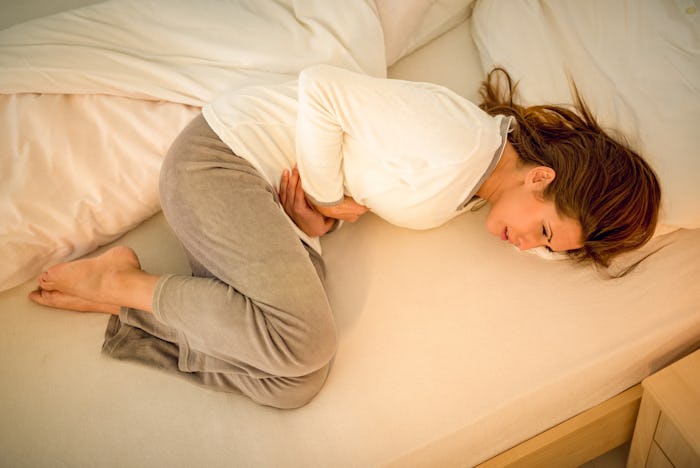Life

Symptoms Of Endometriosis So You Can Seek A Solution For The Pain
Living with endometriosis can be debilitating for many women. What's worse is how widely misunderstood this condition is, and the tendency of people to think the symptoms of endometriosis aren't any worse than bad menstrual cramps. Which is totally untrue.
According to the United States Department of Health and Human Services, endometriosis is a condition where the lining of the uterus grows outside the uterus. As of today, 5 million women are confirmed having endometriosis and, unfortunately for them, it has no cure. Women most affected are in their 30s and 40s, but it occurs in women as early as adolescence. As for what causes it, the medical community has a couple of theories. One of the most common causes, according to Mayo Clinic, is retrograde menstrual flow, when tissue shed during your period flows through the fallopian tube into other areas of the body. Genetics, hormonal imbalances, and immune system disorders are also believed to play a contributing factor in the condition.
The symptoms of endometriosis vary dramatically. The most common symptom is pain, according to the Endometriosis.org, a global forum for the condition. Pain can lodge itself in the abdomen, resulting in cramps so severe you have to be hooked up to an IV to receive high doses of medicine. Women with endometriosis can experience back pain, intestinal pain, bowel pain, and pain during intercourse. Spotting between periods and heavy periods is common. Additionally, you may experience digestive and bowel trouble, and the "always pleasant" bloating and nausea. Endometrial growths, or cysts, can also develop, which cause not only physical pain, but fear in many women about their potential to conceive.
According to Mayo Clinic, the possibility of infertility is a symptom of endometriosis. And doctors don't really know why this is. However, the U.S. Department of Health and Human Services theorizes that endometrial growths can prevent the sperm from uniting with the egg, or that lining of the uterus is not as strong as it could be, thus preventing the potential to carry a baby to term.
But the good news is, hormonal treatments for endometriosis are available, as well as different types of surgeries to help reduce endometrial growths. With the right kind of management, you can live with endometriosis and alleviate the symptoms so that they don't rule your life.